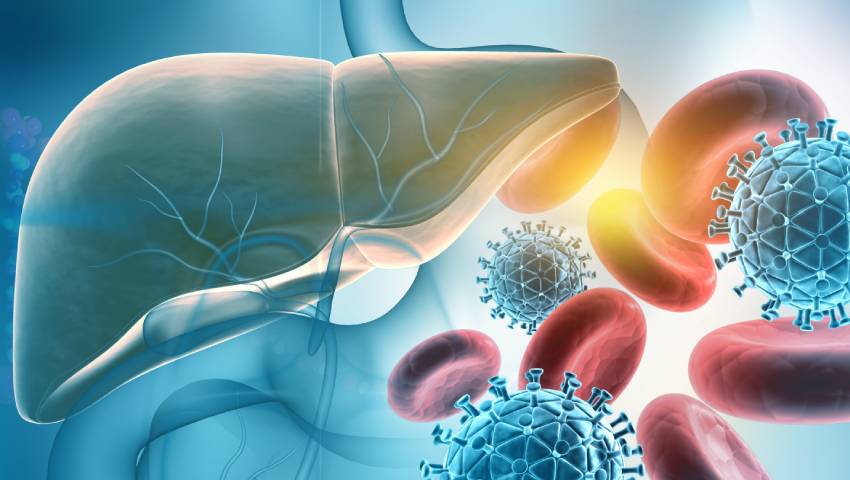
- 19/07/2024
- Dr. Srivatsan Gurumurthy
- 0 Comments
- Blog
Hepatitis Awareness: Types, Prevention, and Treatment Strategies
Did you know you can prevent hepatitis? or Are you looking for hepatitis treatment in Chennai? Then you are in the right place. See Dr. Srivatsan Gurumurthy at GEM Hospital, Chennai! World Hepatitis Day is observed on the 28th of July every year to commemorate the birthday of Nobel Laureate Baruch Samuel Blumberg, who discovered the hepatitis B virus. In India, according to the latest estimates, 40 million people are chronically infected with hepatitis B while 6 to 12 million people are chronically infected with hepatitis C. Hepatitis E (HEV) is the most important cause of epidemic and endemic hepatitis, though hepatitis A (HAV) is more common among children. Hepatitis causes 1.4 million deaths annually.
Hepatitis is a medical condition defined by the inflammation of the liver, which can significantly impact liver function. Understanding hepatitis, its types, prevention strategies, and treatment options is crucial for managing and reducing the global burden of this disease. Dr. Srivatsan Gurumurthy explains how to raise awareness about hepatitis, outlines its different types, and discusses effective prevention and treatment strategies. He provides the best Liver disease treatment in Chennai.
What is Hepatitis?
Hepatitis is a medical disorder marked by the inflammation of the liver. This inflammation can result from various causes, including viral infections, alcohol consumption, certain medications, and autoimmune diseases. The primary focus of this blog is on viral hepatitis, which is caused by different viruses, leading to various types of hepatitis: A, B, C, D, and E. Each type has distinct transmission modes, symptoms, and treatment strategies.
Types of Hepatitis:
According to Dr. Srivatsan Gurumurthy, a renowned Liver Transplant surgeon in Chennai also Hepatitis is categorized into several types, each caused by different viruses. The most typical types are Hepatitis A, B, C, D, and E.
- Hepatitis A: Hepatitis A is caused by the Hepatitis A virus (HAV) and is usually transmitted through ingesting contaminated food or water. It is an acute, short-term illness that typically does not lead to chronic liver disease. Signs include fatigue, nausea, abdominal pain, and jaundice.
- Hepatitis B: Hepatitis B, caused by the Hepatitis B virus (HBV), can be acute or chronic. It is transmitted through contact with infectious body fluids, such as blood, semen, and vaginal fluids. Chronic Hepatitis B can lead to serious liver conditions, including cirrhosis and liver cancer. Symptoms of acute infection include fever, fatigue, loss of appetite, and jaundice.
- Hepatitis C: Hepatitis C is caused by the Hepatitis C virus (HCV) and is primarily spread through blood-to-blood contact, often via shared needles or other equipment used to inject drugs. Most individuals with Hepatitis C develop chronic infection, which can lead to severe liver damage over time. Symptoms are often mild or absent in the early stages but can include fatigue, abdominal pain, and jaundice.
- Hepatitis D: Hepatitis D, or Delta Hepatitis, is caused by the Hepatitis D virus (HDV) and occurs only in individuals already infected with Hepatitis B. It is transferred via contact with infectious body fluids. Co-infection with Hepatitis B and D can lead to more severe liver disease than infection with Hepatitis B alone.
- Hepatitis E: Hepatitis E is generated by the Hepatitis E virus (HEV) and is typically transferred via the consumption of contaminated water. It is typically an acute, self-limiting infection but can be severe in pregnant women. Signs include fatigue, nausea, abdominal pain, and jaundice.
What are the signs and symptoms of Hepatitis?
The signs and symptoms of hepatitis can differ depending on the type of hepatitis and the phase of the infection. Here are some common symptoms:
- Loss of appetite
- Nausea and/or vomiting
- Fever
- Dark urine
- Stomach pain
- Fatigue and weakness
- Jaundice
- Abdominal swelling and fluid retention
- Yellowing of the skin and eyes(jaundice)
- Mood change, forgetfulness
- Pale or clay-colored stools
- Muscle or joint pain
- Flu-like symptoms (headache, fever, body aches)
- Spider-like blood vessels on the skin (spider angiomas)
If you notice any of the symptoms, you must visit Dr. Srivatsan Gurumurthy at the earliest. The fastest review and next therapy will help you to overcome hepatitis.
How to prevent Hepatitis?
Preventing Hepatitis A:
Adopting a comprehensive approach is crucial to reduce the risk of Hepatitis A transmission. Key measures include:
- Immunization: Receiving the Hepatitis A vaccine is fundamental. It protects individuals and aids in establishing herd immunity, thereby curbing the virus’s spread.
- Hygienic Practices: Encouraging regular handwashing with soap and water is vital, especially in environments with frequent personal interactions, to prevent Hepatitis A.
- Food Safety: Safe food handling and preparation are essential. Proper sanitation in food establishments and individual food safety awareness significantly lower Hepatitis A infection risks.
Preventing Hepatitis B:
Strategies to prevent Hepatitis B focus on reducing transmission risks through various methods. Key measures include:
- ImmunizationThe Hepatitis B vaccine is highly effective and recommended for all ages, providing long-term protection and substantially lowering infection risk.
- Safe Sexual Practices: Using barrier methods like condoms during sex is crucial to prevent Hepatitis B transmission. Education and awareness about safe sex enhance community health.
- Avoiding Shared Personal Items: Since Hepatitis B can spread through contact with infected blood or bodily fluids, it’s essential to avoid sharing items like razors, toothbrushes, or needles.
Preventing Hepatitis C:
Preventing Hepatitis C involves specific strategies, particularly for high-risk groups. Key measures include:
- Needle Exchange Programs: For those using injectable drugs, needle exchange programs provide sterile needles and promote safe injection practices, reducing Hepatitis C transmission risks.
- Safe Injection Practices: Ensuring the use of sterilized medical equipment and disposable needles in healthcare and other settings is crucial for Hepatitis C prevention.
- Blood Screening and Testing: Regular blood screenings and tests, especially in high-risk populations, help detect Hepatitis C early. Early diagnosis enables prompt intervention and treatment.
If you have liver concerns in Chennai, consult a reputable liver treatment center for personalized advice and care, whether for hepatitis prevention or other liver issues.
Effective Hepatitis Treatment Options with Dr. Srivatsan Gurumurthy:
At GEM Hospital, Chennai, we provide comprehensive and effective hepatitis treatment in Chennai, focusing on effective management, optimal liver health, and improved quality of life for our patients. Treatment for hepatitis depends on the type of hepatitis and whether the infection is acute or chronic.
- Hepatitis A and E: There is no specific therapy for Hepatitis A and E. Most people recover on their own with supportive care, which includes rest, adequate hydration, and proper nutrition. Severe cases may require hospitalization.
- Hepatitis B: Treatment for acute Hepatitis B focuses on supportive care. Chronic Hepatitis B may require antiviral medications to reduce viral load and slow liver damage. Regular monitoring of liver function and screening for liver cancer are essential. In severe issues, a liver transplant may be necessary.
- Hepatitis C: Acute Hepatitis C is often not treated, as some people clear the virus on their own. Chronic Hepatitis C is treated with antiviral drugs called direct-acting antivirals (DAAs), which can cure the infection in most cases. Treatment is tailored to the individual based on the specific strain of HCV and other health aspects.
- Hepatitis D: Treatment options for Hepatitis D are limited. Managing Hepatitis B co-infection with antiviral therapy is crucial. In some cases, pegylated interferon may be used, but it has limited efficacy and important side effects. Liver transplantation may be considered for severe liver disease.
The Role of Public Health and Awareness:
Public health measures play an important role in controlling and preventing hepatitis. These include:
- Screening and Early Detection: Regular screening for hepatitis, especially in high-risk populations, can lead to early diagnosis and therapy, reducing the risk of difficulties.
- Education and Awareness: Public health campaigns to educate people about the modes of transmission, prevention strategies, and the importance of vaccination are necessary.
- Access to Healthcare: Ensuring access to vaccines, safe injection equipment, and antiviral medicines can greatly reduce the burden of hepatitis.
Book An Appointment with Dr. Srivatsan Gurumurthy:
Hepatitis remains a significant global health challenge, but with effective prevention and treatment strategies, it is possible to reduce its impact. Vaccination, safe practices, and public health measures are key components in the fight against hepatitis. Dr. Srivatsan Gurumurthy emphasizes the importance of awareness, early detection, and timely treatment to manage and prevent this disease. By staying informed and taking proactive measures, we can work towards a world free from the burden of hepatitis.
Feel Free to Contact and Book an appointment online with Dr. Srivatsan Gurumurthy!
